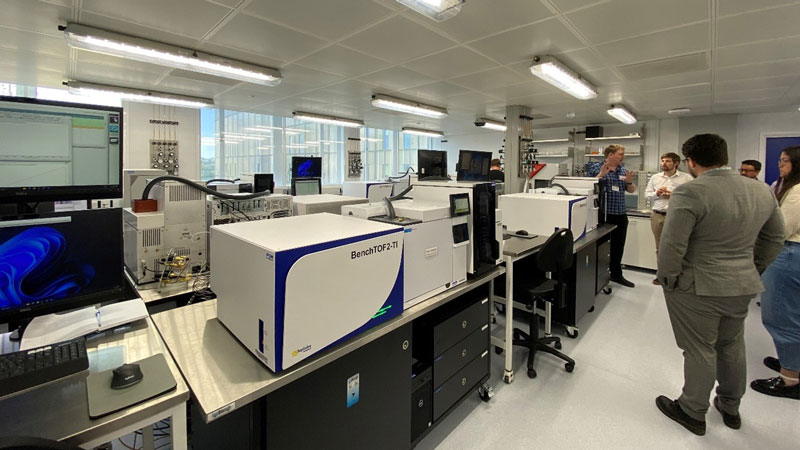1 August 2023
 Laura McGregor (Product Marketing Manager, SepSolve Analytical Ltd)
Laura McGregor (Product Marketing Manager, SepSolve Analytical Ltd)
In June, we hosted a one-day seminar – Analytical strategies to improve data quality in biomarker discovery – in collaboration with our sister company, Markes International, and the Volatile Biomarker Research Group, led by Prof. George Hanna at Imperial College London (UK).
Around 50 delegates from the UK and beyond came to hear several distinguished speakers discuss their work in the field volatile biomarker discovery, and take part in a panel discussion to help drive standardisation protocols.
To start the day, Prof. Hanna (Imperial College London) gave a presentation on Developing a breath test to detect gastrointestinal cancers. Prof. Hanna described the challenges in diagnosing gastrointestinal (GI) cancers and how his team at Imperial College London aims to improve survival rates by use of non-invasive breath tests during triage. He described his research into the detection of the volatile signatures for GI-specific cancer cells using thermal desorption and GC–TOF MS, as well as the steps involved in validating and scaling up these studies for clinical practice.
The next speaker was Dr Waqar Ahmed, a researcher at the University of Manchester, who discussed Characterisation of pathogen-specific biomarkers in bacterial pneumonia using high-capacity sorptive extraction (HiSorb™) and automated chemometrics. Dr Ahmed explained that monitoring the volatiles released by pathogens is a promising approach to identify biomarkers of infections, such as ventilator-associated pneumonia. He explored the use of high-capacity sorptive extraction probes to sample volatiles from the headspace of various pathogen cultures, including ampicillin-sensitive and resistant strains, prior to analysis by TD–GC–MS.
We then had a change of pace with a panel discussion on “Standardisation in breath analysis: Where do we start?” chaired by Dr David Worton from The National Physical Laboratory (NPL) and featuring panellists Aaron Parker (Imperial College London), Dr Waqar Ahmed (University of Manchester) and Prof. Paul Thomas (Bioxhale).
The takeaway message was that there is real desire in the research community to generate standard practices to ensure highest quality data and reliable testing, but within a manageable timeframe. Networking meetings, like this seminar, are a great way to share experiences and innovations within the biomarker community to identify and validate “good enough”, remove barriers to large scale clinical trials and reach the goal of a practical, sensitive and specific breath test in a clinician’s diagnostic tool kit.
After the lunch break, I gave a presentation with my colleague from Markes International, Dr Helen Martin, entitled “From research to routine screening: Meeting the evolving demands of clinical breath analysis with thermal desorption and GC–TOF MS”. In this presentation, we demonstrated how the latest analytical tools can help tackle many of the measurement challenges raised in the panel discussion and help move biomarker research and effort into a place of widespread confidence, trust and reliability.
Philip Leung, a PhD student in the Volatile Biomarker Group at Imperial College London, then gave a presentation on Unique volatile signatures of gastrointestinal cancers suggest cell autonomous drivers of metabolic reprogramming. Philip described global profiling of the volatile metabolome of gastrointestinal (GI) cancers using headspace sorptive extraction of cell lines grown in vitro prior to analysis by TD–GC–TOF MS. The presentation explained how the next phase involves a clinical biomarker translation study to monitor the target VOCs in matrices such as breath, urine and saliva.
For the final presentation of the day, Aaron Parker, lab manager for the Volatile Biomarker Research Group at Imperial College London, introduced the workflows they use for screening breath biomarkers by TD–GC–TOF MS, including the various quality control measures put in place to ensure sample integrity and full traceability. This was a great way to introduce the group’s workflows before taking all attendees on a tour of the lab facilities.